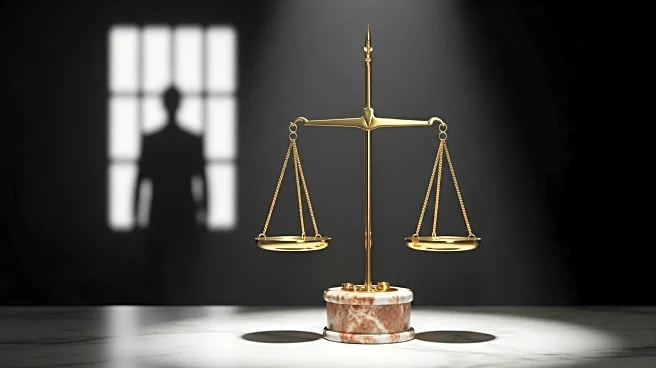What's Happening?
Recent immigration enforcement actions have led to concerns about U.S. citizens being detained during raids. Cary Lopez Alvarado, a U.S. citizen from Los Angeles, was detained by federal immigration agents and forced to prove her citizenship to secure her release. She was handcuffed and detained for over eight hours, during which she went into labor. Her boyfriend was also detained and later deported to Guatemala. Lopez Alvarado, along with seven other Americans and one green card holder, has filed legal claims against the U.S. government, alleging wrongful detention and racial profiling. The Department of Homeland Security announced plans to deport nearly 600,000 undocumented immigrants by the end of 2025. A recent Supreme Court decision has increased the risk of U.S. citizens being questioned or detained during immigration enforcement, prompting lawyers to advise clients to carry their documents at all times.
Why It's Important?
The detention of U.S. citizens during immigration enforcement raises significant concerns about civil rights and due process. The legal claims filed by Lopez Alvarado and others highlight issues of racial profiling and wrongful detention, which could have broader implications for immigration policy and enforcement practices. The Supreme Court's decision to freeze a district court's restraining order may lead to increased scrutiny of federal immigration authorities' actions, potentially affecting public trust in government agencies. The situation underscores the need for clear guidelines and protections to prevent the wrongful detention of U.S. citizens and legal residents during immigration raids.
What's Next?
The legal claims filed against the U.S. government may lead to further investigations and potential changes in immigration enforcement practices. Advocacy groups and legal experts are likely to continue pushing for reforms to ensure that U.S. citizens and legal residents are not wrongfully detained. The Department of Homeland Security's deportation plans may face challenges and scrutiny, particularly in light of the allegations of racial profiling and wrongful detention. The outcome of these legal claims could influence future policy decisions and enforcement strategies.
Beyond the Headlines
The broader implications of these developments include potential shifts in public perception of immigration enforcement and its impact on civil liberties. The allegations of racial profiling and wrongful detention may prompt discussions about the ethical and legal dimensions of immigration policy. The situation also highlights the importance of balancing national security concerns with the protection of individual rights and freedoms.










